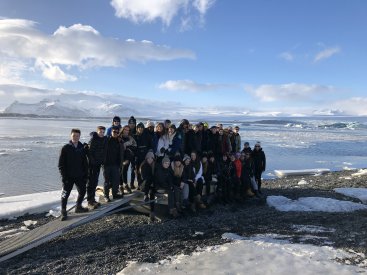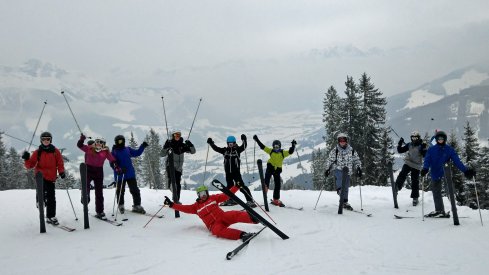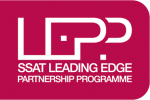Media Studies
Eduqas Media studies attract a large number of students because of the content that is studied over the course. We study challenging texts from the 1950’s all the way to modern texts that the students will have witnessed in mass media. The course is fun & rigorous, allowing students to understand how the media impact our world experience.
It offers:
- Extensive and meaningful coverage of media theory and practice
- Practical work which integrates theory and concepts
- Assignments which students have to complete pre-production and production processes
- A choice of study across all three media platforms
- Opportunities to study both recent media products and those from the past
- Opportunities for progression, especially to GCSE Media Studies and Film Studies
Media Studies is offered from GCSE and we will also be offering an A Level Media course from September 2020.
GCSE Media Studies - Year 10 Curriculum
Autumn Term 1
Intro to GCSE Media Studies
Students will learn the basic framework of Media Studies. They will learn about key concepts (RAIL) as well as basic media terminology (Denotation and Connotation)
Advertising and Marketing
Students will be introduced to Com 1 (exam) students will learn how to complete a semiotic analysis in relation to R and L.
Assessment:
2 part assessment Analysis of set product - Exam Question -
How does This Girl Can use media language to communicate meaning? Layout, Language, Image [15]
Create an advert which could be part of a sports ad campaign, take your own picture, own slogan. Short paragraph on why your ad fits their campaign.
Deep marking:
The assessment question
Autumn Term 2
Radio and Video Game
Fortnite and The archers
Students will learn about the gaming industry and how Fortnite targets its audience and why it has become so popular.
Students will study the Archers and explore how the archers have diversified in the technological era. Students will explore this through a practical scheme
Assessment:
Students will create their own radio episode of the archers and advertise it to the BBC
Deep marking:
Their response to brief. Written - Demonstrating understanding of BBC
Spring Term 1
TV
Students will study the IT crowd and Friends in relation to all key Concepts. (RAIL)
They will explore genre in some detail.
Students will be able to debate why sitcoms have changed over time.
They will explore the difference between British and American Sitcom
Assessment:
Section A Com 2 Mock examination - Open Book
Deep marking:
Mock exam given
Spring Term 2
News and Magazines
Students will focus on Section A Com 1 for news- Textual analysis
They will explore magazines in relation to R and L. This will enable them to complete their coursework during the summer.
Students will be introduced to theories throughout news and magazines.
Assessment:
Mock questions - peer assessed answers.
Deep marking:
Mock Questions
Summer Term 1
NEA - Magazines
Based on a brief which is released yearly by the exam board, Eduqas
Assessment:
Coursework
Deep marking:
Coursework development
Summer Term 2
NEA Magazines
Based on a brief which is released yearly by the exam board, Eduqas
Assessment:
Coursework
Deep marking:
Coursework completed
GCSE Media Studies - Year 11 Curriculum
Media studies build on the foundations developed in Year 10; students analyse texts from music to radio. Students can develop understanding in A Level theories, preparing them for A Level.
Autumn Term
Students are studying component 2 section B of the exam. Students study all key concepts about the following products:
Katy PerryBruno Mars Uptown FunkThey must study websites for Katy and Bruno, with the opportunity to improve these answers if time allows.
Students are studying the final products for section B of the component 1 exam. They should study:
The ArchersThe Sun (Specific newspaper selected by Arden)
Spring Term
Students learn how to structure exam answers for both exams. They should be taught PEAL or PETAL paragraphs which follow suit of what they are aware of from Year 10. Students need to do deeper research into specific topics, particularly contexts of products.
Students return to component 1 and 2 that they studied in Year 10. They will spend a few lessons on each product. This will allow them to apply knowledge of structured answers to mock questions.
Assessment – students complete mock papers. These will be given back to students who can focus on improvement
GCSE Media Studies - Assessment
Component 1 – Exploring the Media
Written paper – 1 hour 30 mins
40% GCSE
Students answer questions based on the key concepts (Media language, representation, audience, industry and context) concerning set products selected by Eduqas.
Component 2 – Understanding Media Forms and Products
Written paper – 1 hour 30 mins
30% GCSE
Students study music videos and sitcoms in relation to the media concepts (Media language, representation, audience, industry and context)
Component 3- Creating Media Products
Students create a product based on a brief that is released annually. There are several options to choose from. At Arden, we create print products.
A Level Media Studies - Assessment
Entrance Grade Media Studies – Grade 6
or
English – Grade 5 (if Media Studies has not been taken)
Component 1– Media Products, Industries and Audiences
2hrs 15mins
35% Qualification
Students answer questions based on the key concepts (Media language, representation, audience, industry and context) focusing on studied set products selected by Eduqas.
Component 2 – Media Forms and Products in Depth
2hrs 30mins
35% Qualification
The examination assesses media language, representation, media industries, audiences and media contexts. It consists of three sections – TV in the Global Age, Magazines (mainstream and alternative media), and Media in the Online Age
Component 3 – Cross-Media Production
Non-exam Assessment
30% Qualification
An individual cross-media production based on two forms in response to a choice of briefs set by WJEC, applying knowledge and understanding of the theoretical framework and digital convergence.
If you would like to find out any more about the curriculum, please contact Mrs T Hill – Head of Media Studies.
Additional information about the GCSE and A Level curriculums can be found on the following links:
https://www.eduqas.co.uk/qualifications/media-studies-as-a-level/#tab_overview
https://www.eduqas.co.uk/qualifications/media-studies-gcse/#tab_overview
If you would like to find out any more about the subject, please contact Mrs T Hill – Head of Media Studies.
















